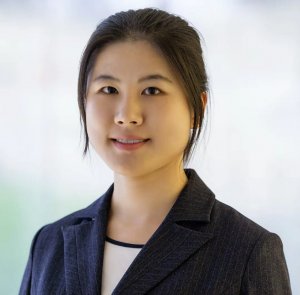Presented By: Michigan Institute for Data and AI in Society MIDAS
Challenges in dynamic mode decomposition
Ziyou Wu – PhD student, Electrical and computer engineering, Bio-inspired robotics dynamical system lab

Dynamic Mode Decomposition (DMD) is a powerful tool in extracting spatio-temporal patterns from multi-dimensional time series. DMD takes in time series data and computes eigenvalues and eigenvectors of a finite-dimensional linear model that approximates the infinite-dimensional Koopman operator which encodes the dynamics. DMD is used successfully in many fields: fluid mechanics, robotics, neuroscience, and more. Two of the main challenges remaining in DMD research are noise sensitivity and issues related to Krylov space closure when modeling nonlinear systems. In our work, we encountered great difficulty in reconstructing time series from multilegged robot data. These are oscillatory systems with slow transients, which decay only slightly faster than a period.
Here we present an investigation of possible sources of difficulty by studying a class of systems with linear latent dynamics which are observed via multinomial observables. We explore the influences of dataset metrics, the spectrum of the latent dynamics, the normality of the system matrix, and the geometry of the dynamics. Our numerical models include system and measurement noise. Our results show that even for these very mildly nonlinear conditions, DMD methods often fail to recover the spectrum and can have poor predictive ability. We show that for a system with a well-posed system matrix, having a dataset with more initial conditions and shorter trajectories can significantly improve the prediction. With a slightly ill-conditioned system matrix, a moderate trajectory length improves the spectrum recovery. Our work provides a self-contained framework on analyzing noise and nonlinearity, and gives generalizable insights dataset properties for DMD analysis.
Work was funded by ARO MURI W911NF-17-1-0306 and the Kahn Foundation.
Here we present an investigation of possible sources of difficulty by studying a class of systems with linear latent dynamics which are observed via multinomial observables. We explore the influences of dataset metrics, the spectrum of the latent dynamics, the normality of the system matrix, and the geometry of the dynamics. Our numerical models include system and measurement noise. Our results show that even for these very mildly nonlinear conditions, DMD methods often fail to recover the spectrum and can have poor predictive ability. We show that for a system with a well-posed system matrix, having a dataset with more initial conditions and shorter trajectories can significantly improve the prediction. With a slightly ill-conditioned system matrix, a moderate trajectory length improves the spectrum recovery. Our work provides a self-contained framework on analyzing noise and nonlinearity, and gives generalizable insights dataset properties for DMD analysis.
Work was funded by ARO MURI W911NF-17-1-0306 and the Kahn Foundation.